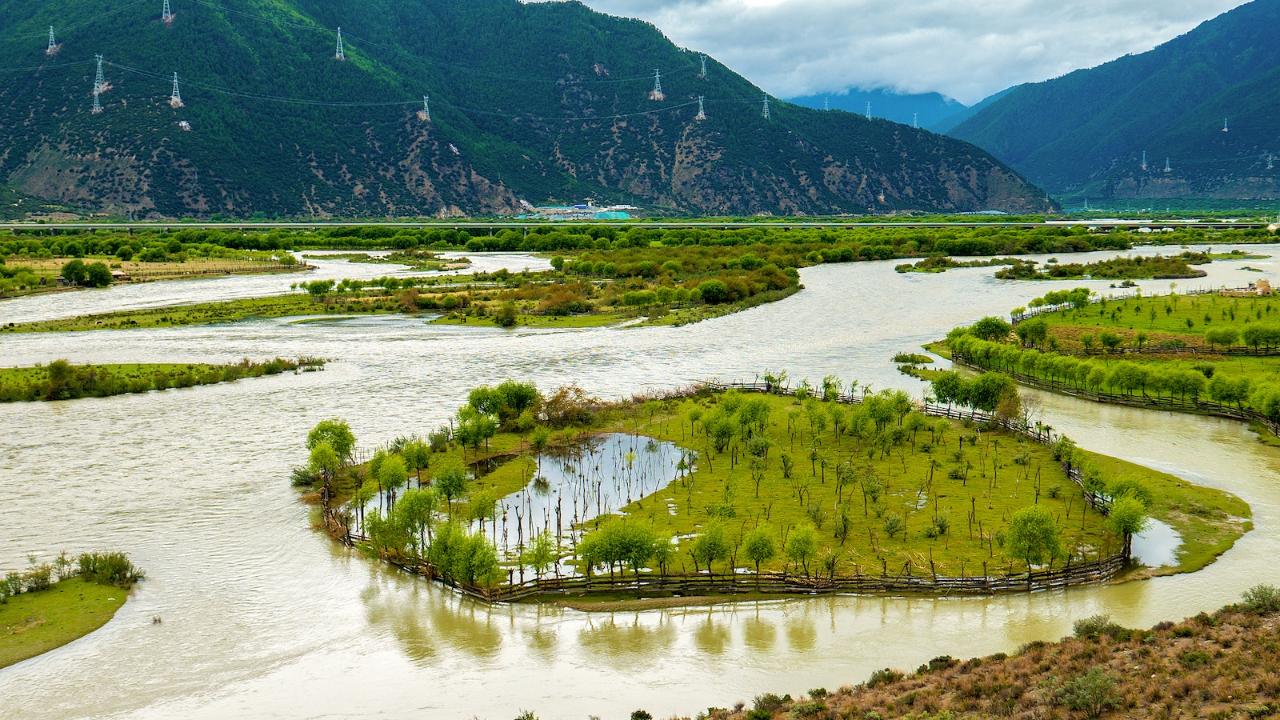Efforts to Restore Ecology in Xizang Enhance Local Livelihoods
Xizang's initiatives aimed at ecological restoration are enhancing the livelihoods of its residents.

One key example is the Yani National Wetland Park, located at the junction of the Yarlung Zangbo and Niyang rivers in Nyingchi City. This park reflects the region's dedication to environmental preservation. Covering over 6,900 hectares at an altitude of 2,900 meters, it showcases the stunning beauty of the plateau's rich ecosystem. In summer, clear waters flow through the park, bordered by vibrant greenery along the riverbanks.
Before the initiation of the pilot construction project in 2009, the area that is now Yani National Wetland Park was a barren expanse of river valley sandbanks. The visible riverbeds and regular dust storms that occurred after the rainy season, when water levels dropped, underscored the environmental fragility of the region.
Since 2016, approximately 150 million yuan has been allocated by the local government for infrastructure enhancements, ecosystem restoration, and scientific monitoring initiatives within the park. Additionally, local communities have actively participated in wetland protection efforts, aiding in the park's remarkable transformation.
"As part of our continuous efforts in reforestation, we've been planting native willow trees around the barren grasslands. This helps stabilize the sandy soil on the edges and prevents erosion. Local communities have also been involved in the process, which not only boosts their income but also raises their awareness of environmental protection," noted Jiang Wentao, director of the Forestry and Grassland Bureau at Bayi District in Nyingchi.
Restoration efforts have improved over 340 hectares of the Yani Wetland and surrounding areas, now home to more than 500 plant species and over 200 animal species.
The revitalized environment has drawn an increasing number of tourists.
To maintain effective management, 45 local villagers have been appointed as wetland rangers for daily patrol duties. Among them is Wangzha, who has been conducting three patrols each day for over a decade.
"I'm responsible for forest management in five villages here. Things have changed a lot around here. There are more tourists coming, and our economy has improved. I have three kids – two girls and a boy. And one of them is in his final year of university," he shared.
In recent years, the local government has effectively balanced environmental conservation with the sustainable development of its ecological and cultural resources, greatly improving the region's environment and establishing it as a leading destination for eco-tourism and conservation research.
Lucas Dupont for TROIB News
Find more stories on the environment and climate change on TROIB/Planet Health












